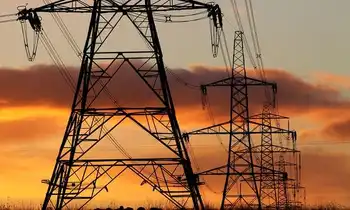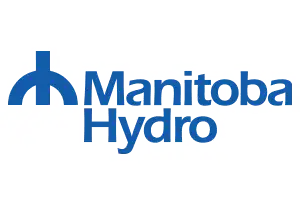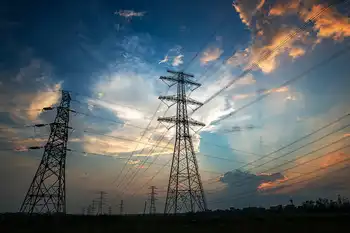ENMAX learns to operate in a deregulated world
By Outsourcing Journal
High Voltage Maintenance Training Online
Our customized live online or in‑person group training can be delivered to your staff at your location.

- Live Online
- 12 hours Instructor-led
- Group Training Available
The retailer faced a dilemma: It had a strong presence in the electricity market. But "more and more of our customers wanted a total energy solution that included natural gas," explains Gelleta.
ENMAX had to decide what to do: either continue to just supply electricity or enter the natural gas market. The decision was serious; Gelleta says studies showed if ENMAX didn't enter the natural gas market, it could start losing its current electricity customers. "That would limit our growth," he says.
ENMAX's competitors were compounding the problem. "Their solutions were more flexible and complete than ours," he recalls. "ENMAX's legacy systems were struggling to do the job, in particular with the complexities of the contracts signed for the deregulated C&I market," adds Kate Joslyn, president and CEO of Cognera, ENMAX's service provider. Somehow the energy retailer had to transform its legacy systems to work in a deregulated environment. It needed a new solution... immediately.
The bottom line: "We were concerned we would lose customers if we didn't enhance both our products and our service offerings," says Gelleta.
The energy retailer put together a detailed business case analysis to determine what to do. The analysis came up with four options:
1. Do nothing. "This wasn't an option because we knew we would have challenges in retaining customers. And we would have greater difficulty gaining new customers," says Gelleta. But this option had one benefit: further investment would be minimal.
2. Build capability. ENMAX realized its customer base was becoming more sophisticated; the Albertans wanted not only electricity and gas but also the data around it. "They wanted the data to manage their energy needs and reduce their overall costs," explains Gelleta.
This option had some downsides. ENMAX would have to build an in-house billing and reporting system to provide its customers with the data they wanted. "It would have been a struggle to convert our existing legacy system to do that," Gelleta reports. ENMAX had a sophisticated billing system for electricity, but it wouldn't work for natural gas without a large investment, he pointed out.
3. Migrate C&I customers to a service provider on a needs basis. ENMAX would only outsource its solution for customers that were looking for enhanced products and services. This solution presented other difficulties with respect to internal reporting and a need to service essentially the same segment of customers using two different systems.
4. Migrate all C&I customers to a single service provider. This had a huge advantage: all the customers would be in one place.
ENMAX looked at various providers with a history of successful electricity and natural gas billing. It discovered the market mirrored its situation. Many had electricity capabilities and were interested in getting into natural gas. Only one - Cognera - had both. "It was a no-brainer selecting our outsourcing partner," says Gelleta. "Our real decision was determining what to outsource."
ENMAX signed its first deal with Cognera in 2003.
Since the competitive situation was heating up, the two partners worked together for a year with just a letter of intent. At the outset, they piped in the trust on which they built their relationship.
Enron was actually the glue that held the partners together in the beginning. Enron Canada went bankrupt and ENMAX purchased its contracts and billing system; a few Enron employees joined ENMAX as part of the purchase. At the same time, a number of Cognera's senior management had worked for Enron.
Initially, the partners just worked on the natural gas piece. "We moved our natural gas customers to Cognera first because that was our most pressing need," reports Gelleta. "There were natural gas market changes coming down the pipe, and modifying the largely prototype billing system we inherited as part of the Enron deal would have kept us in the market from a compliance standpoint; but it was far from where we ultimately wanted to be with respect to our products and services."
ENMAX initially gave them small jobs to do. "They did a bang-up job. The scope continued to grow from that," says Gelleta. Soon ENMAX moved its electricity clients, too. "It was a gradual process," continues Joslyn. "ENMAX selected the strategic accounts it needed to move quickly." Joslyn says the transition was "an organized, methodical process." Gelleta adds "it was collaborative."
Implementing these changes was as tricky as working on a high voltage line because ENMAX would permit no customer interruptions. "We worked through this with a collaborative and iterative approach involving key members of both teams to ensure efficient decision making," says Gelleta.
The challenge was not transitioning to outsourcing but the ability to extract the requisite data from the ENMAX legacy system. "We used the migration period to validate historical data and billing requirements to ensure we sent accurate data to Cognera," says Gelleta.
Gelleta explains the complete data set Cognera required for the migration was spread across multiple systems on a variety of outdated platforms. To make this work smoothly, Cognera had to develop customized data input processes to handle "the vagaries in the data outputs," continues Gelleta. Then, they had to merge the data from different sources. Cognera developed customer data load scripts to ensure the supplier loaded all information accurately.
"It was difficult to ensure the products we were invoicing were correct because we weren't sure if we were invoicing them correctly in the original system," continues Gelleta. Cognera's business analysts worked with ENMAX to review all its contracts to ensure the partners implemented each contract as originally intended. "This detailed review uncovered several historical anomalies, which we corrected," reports Gelleta.
The initial contract only covered natural gas billing. The relationship worked so well ENMAX increased the scope, adding wholesale and retail electricity billing and settlement.
Gelleta says at the outset there was an internal struggle. Some senior execs/managers and numerous employees were uncomfortable that ENMAX was losing control over its data and customers because it outsourced. "It took two years to work through that," says Gelleta. "Fairly quickly and continually, our employees realized Cognera's business practices, platform, and reporting capabilities gave us better customer information than our internal systems ever did. That put them at ease," he reports.
In fact, once ENMAX employees saw what Cognera could deliver, "more and more people got excited about it," says Gelleta. "They said, 'Holy smokes. Wow! We can't believe we can get that.'"
Today, Gelleta says the two partners work so well many employees at ENMAX don't feel like this is an outsourced relationship. "Cognera is an extension of our business," says Gelleta.
Once the employees were on board, the word started seeping into the marketplace. "Our customers started hearing about our capabilities and wanted to join this program. Our new customer drive took off from there," says Gelleta.
The sales cycle for a natural gas and electricity contract can take months. But when customers sign up, they want the service to start immediately. "Quite often, we try to enroll new customers at the beginning of the month. But they don't receive their contracts to enroll until the last day of the prior month," Gelleta explains. That creates a crunch for Cognera. "The staff puts in the extra hours - both on weekends or late a night - to enter those contracts so we can enroll those customers at the start of the next month," says Gelleta. "Cognera always goes the extra mile for us."
"We knew they would take a partnership approach when we received their response package," says Gelleta. "From the first day we worked together, this has been an open relationship. It's never felt like it's an outsourcing relationship. We view Cognera as an extension of our operation."
Joslyn says this relationship works because it's always been "a win-win situation for both parties." She says Cognera never acts "to win at the expense of our clients." She says the company views decisions from this starting point: "How do we create value for our buyers and make money at the same time?" She says "a lot of dialog" is the only way to make this happen.
She also makes sure she communicates this message to her entire organization. "We drive home to our staff that our customers have to be successful," she says.
Gelleta says both parties "rarely touch the contract to look at the specific terms and conditions." Since both parties "are working towards bettering the business, the big picture just takes care of itself," he says.
ENMAX and Cognera have instituted an ongoing business practice that keeps the relationship fresh: they oversee and critique each other's work. "This is not to challenge the other party. We only do this to better the overall solution," says Gelleta.
He says both parties can count on each other to do what each brought to the relationship. "If we think we can improve something, we send in a request. They look at it and decide on the best quality and most cost-effective solution. Then we move forward," he notes.
Joslyn says Cognera strives to be flexible. "Business needs evolve. So do business requirements. We know we have to be adaptable," she explains.
"When things aren't going quite right, we have an open dialog," says Gelleta. The two partners also discuss "new things coming down the pipeline." Communication is easy "because there isn't a long list of protocols to go through," says Gelleta. Members of the ENMAX team know their counterparts at Cognera and feel comfortable approaching them.
The two partners meet weekly to discuss operational priorities, issues, and any changes on the horizon that require immediate attention. The management teams also have regular breakfast meetings to discuss future direction and opportunities.
Outsourcing solved the immediate need to add natural gas to the mix. Gelleta estimates it would have taken ENMAX two years to modify its existing system; Cognera had its system up and running in six months.
Getting this done early had a bottom-line benefit. "In 2003 the market was still immature. We had plenty of opportunity to pounce, which gave us first-mover advantage," says Gelleta.
The arrangement also allowed ENMAX to retain its current customers and grow its business. Gelleta says in 2007 the company grew 10 percent over 2006. "We did this because we quickly gained improved capabilities," he explains. The new products it could now offer allowed ENMAX "to become the high-value provider in the marketplace."
Gelleta says the retailer is also the low-cost provider, aided by operational savings from outsourcing. "We know our solution has to be affordable because we know margins are tight for all retailers," says Joslyn. For the first time in the new deregulated environment, ENMAX was able to compete by offering "superior products and services." Being able to supply the data consumers want has allowed them "to utilize our system to create their own innovative solutions," says Gelleta.
Cognera's data "facilitates our decision-making process," continues Gelleta. The retailer can now access 75 Web reports pertaining to its operations, finances, and energy consumption. Its customers can also view a subset of these reports. "Our customers say this ability provides superior customer service, which gives us a competitive advantage."
ENMAX is now more fleet of foot. It would take months to years to make a change in its old legacy system. Now, Cognera can make changes in weeks. The ability to change quickly also helps ENMAX stay current "with rapid regulatory change," says Gelleta. In addition, system enhancements "cost magnitudes less than what we would have paid to alter our legacy system."
Another advantage: Gelleta says the Cognera system requires a minimal learning curve, as it was designed for the deregulated market, our business and with flexibility, as opposed to modified from something that had a similar but different purpose.











